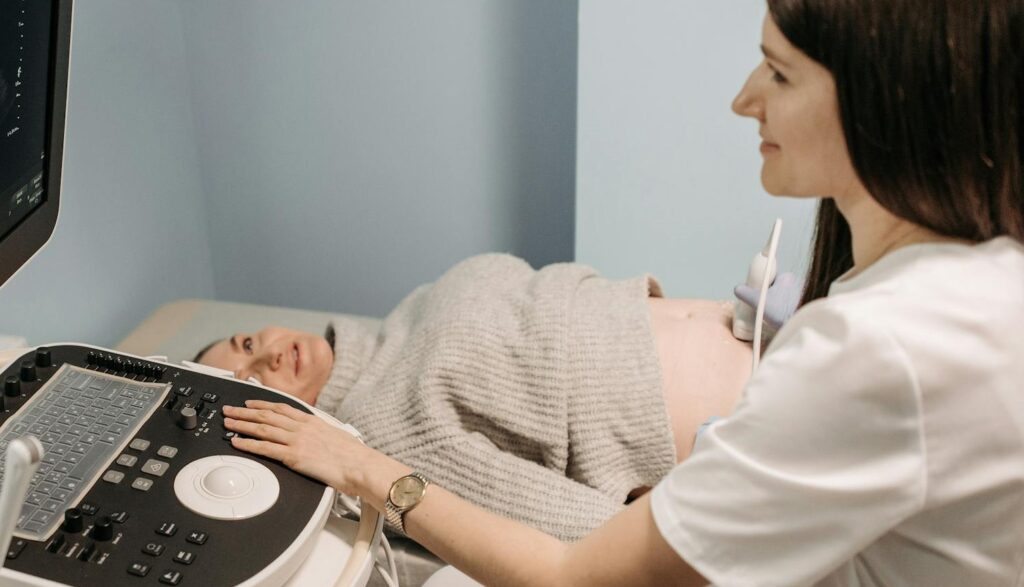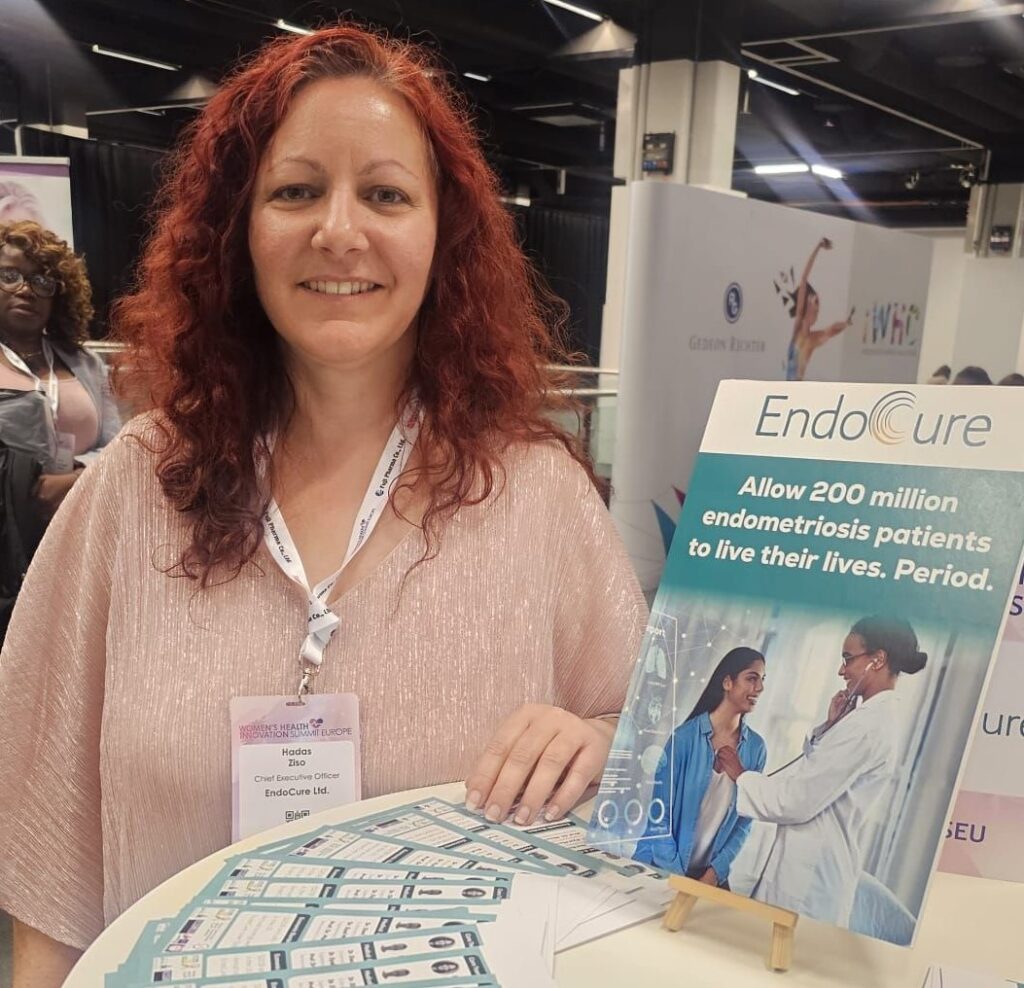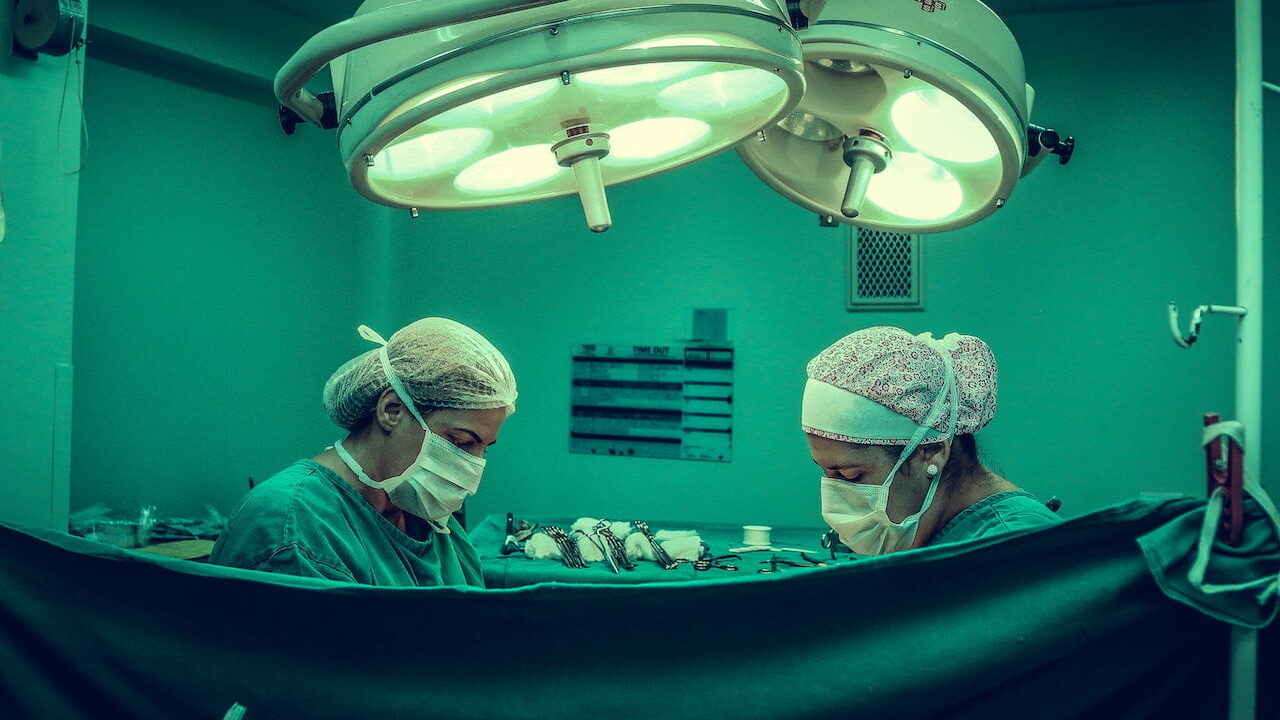Israeli femtech company EndoCure is on a mission to change the way that we diagnose and treat endometriosis, a chronic disease affecting women that causes severe pain and affects fertility, and which is responsible for a range of other debilitating issues.
Endometriosis is a chronic condition in which tissue similar to the lining of the womb grows outside of the uterus, primarily on the ovaries, bowel and other areas in the pelvic region, in what are known as lesions.
And according to the World Health Organization, approximately 1 in 10 women of reproductive age suffer from it.

EndoCure is developing an AI-powered robotic ultrasound system for comprehensive mapping of endometriosis lesions, leading to quicker diagnosis and customized treatment options. The system produces 3D imaging that is able to detect endometriosis lesions and other pathologies tinier than one millimeter in size that are extremely hard for current systems to detect.
Dr. Hadas Ziso, CEO and co-founder of EndoCure, tells NoCamels that today, medical professionals often perform surgery simply to find the lesions because no other way exists to accurately diagnose the condition.
She explains that 80 percent of endometriosis lesions are too small to detect with any imaging modality and a sonographer can easily miss them.
“The entire treatment detection process is like a vicious cycle and the patient is stuck within it,” Ziso says.
In fact, so challenging is the detection of the disease, Yale Medicine reports that there is an average delay of four to 11 years between the onset of the symptoms of endometriosis and the diagnosis and treatment for it.
Armed with four degrees, including an MSc in Biomedical Engineering and PhD in Medical Robotics from the Technion – Israel Institute of Technology, Ziso originally set out to find an issue that she could help solve.
“I really, really wanted to do something for women. I realized I don’t have the time to volunteer, so it has to be through my career,” she explains.
Endometriosis was hardly on Ziso’s radar until she looked into unmet needs in women’s health. “As you probably know, there are many,” she says, with a wry laugh.
Ziso also initially thought that she had no personal connection to the disease, but once she started learning about the condition and speaking about it with other women, she realized that she knew several people who had struggled with it for years.
She soon understood that endometriosis is a very complicated condition with few solutions currently available and that physicians were in dire need for better diagnosis and treatment options.

And so in 2023, Ziso teamed up with her PhD advisor and business partner Prof. Moshe Shoham to found EndoCure, creating a tight-knit and enthusiastic team driven by the desire to bring good into the world.
The EndoCure system integrates with standard ultrasound equipment, streaming the data using its own software as the robotic arm moves slowly and steadily around the area being scanned. The proprietary software can spot the miniscule lesions that could not previously be seen.
Sign up for our free weekly newsletter
SubscribeUsing the system, a patient can undergo a scan before surgery in order to identify where the lesions are. And, since endometriosis is a chronic condition and lesions can return even after surgery, EndoCure makes it easy to continuously monitor a patient.
Ziso says that when it comes to treating endometriosis, there is no other solution that comes close to the one offered by EndoCure, and in fact, searching treatments for the disease will only bring up results showing just how dire the lack of options is.
The most common area of research into endometriosis, she says, is the push for biomarker-based detection, such as saliva, blood and urine tests – much like the current COVID tests. These tests use biomarkers in the body to diagnose whether a woman is positive or negative for endometriosis.
But, Ziso points out, these companies only provide the first step of a patient’s journey, because even with a diagnosis, endometriosis is a chronic condition that does not disappear.
And rather than viewing them as competition, Ziso sees biomarker tests as a complementary tool for making EndoCure the most effective it can be. Once the test has indicated that a patient has endometriosis, EndoCure can find the lesions and be used to create a treatment plan.
In the future, the system will also be able to help with detection of other conditions that leave physical wounds on the sufferer, such as chronic colitis and kidney stones.
“No matter the discipline, if they do an ultrasound, they have the same problem,” Ziso explains.
To date, EndoCure has raised $1 million, with funders including the Israel Innovation Authority, the government body devoted to promoting the national high-tech sector, as well as Haifa-based incubator program IN-VENTech, and veteran Israeli venture capital fund Teuza.
EndoCure was also part of the 2024 cohort of MassChallenge Israel’s Early Stage Accelerator, and went through the program at the same time as they were conducting their first round of fundraising.

Although not endometriosis is not a life-threatening condition, the United States Food and Drug Administration (FDA) recognizes the need for a better solution for the women suffering from the disease. Therefore EndoCure qualified for the FDA’s FastTrack approval process, which is designed for treatments for serious conditions that fulfill an unmet medical need.
EndoCure is beginning its next round of funding, which will take them through the completion of their first human clinical trials. They aim to become commercial in two and half years.
Ziso says she and her team have spoken to more than 30 physicians worldwide, including in the US and Europe, who specialize in endometriosis and who are eager to use EndoCure’s system. The company has actually received several letters of intent from medical facilities indicating the desire to buy the EndoCure system once it is ready.
“They don’t have any other solution,” she says.
Related posts

Israeli Medical Technologies That Could Change The World

Harnessing Our Own Bodies For Side Effect-Free Weight Loss





Facebook comments